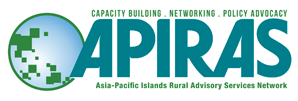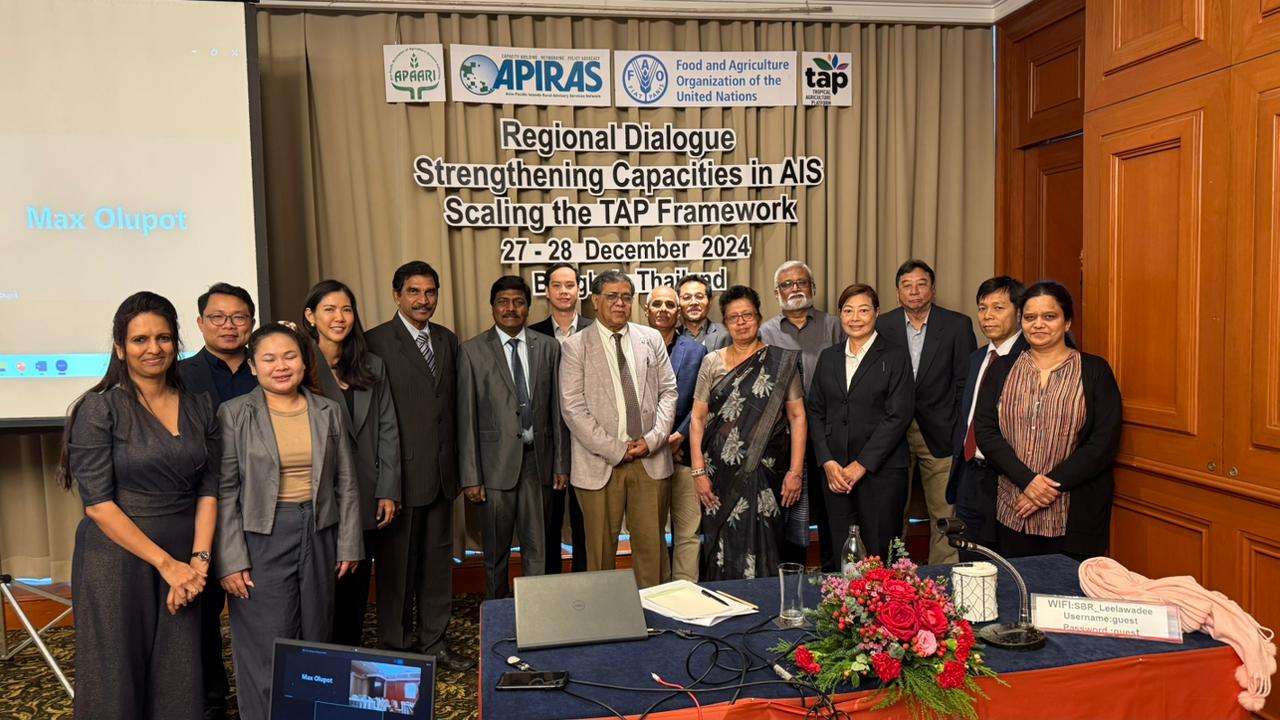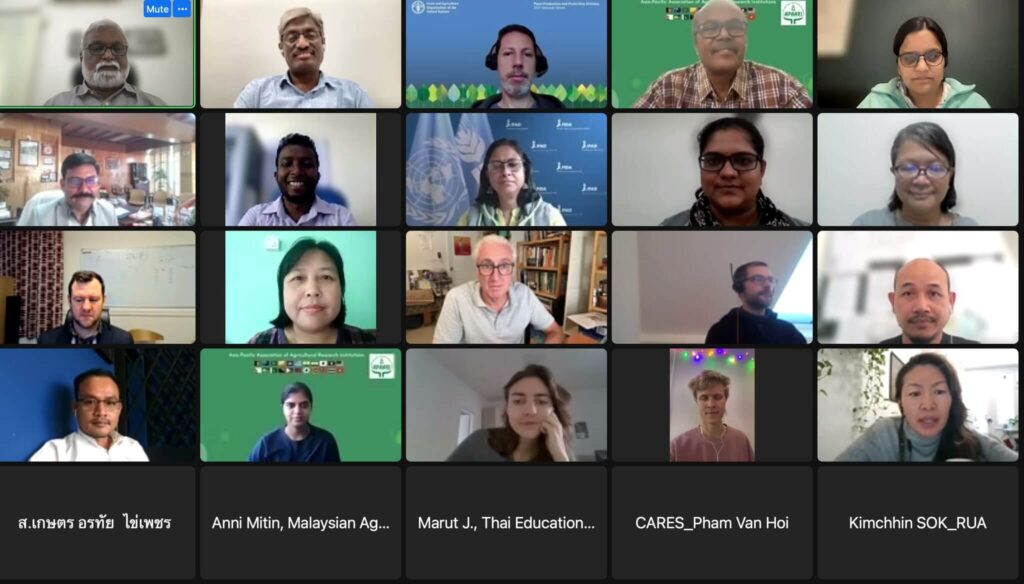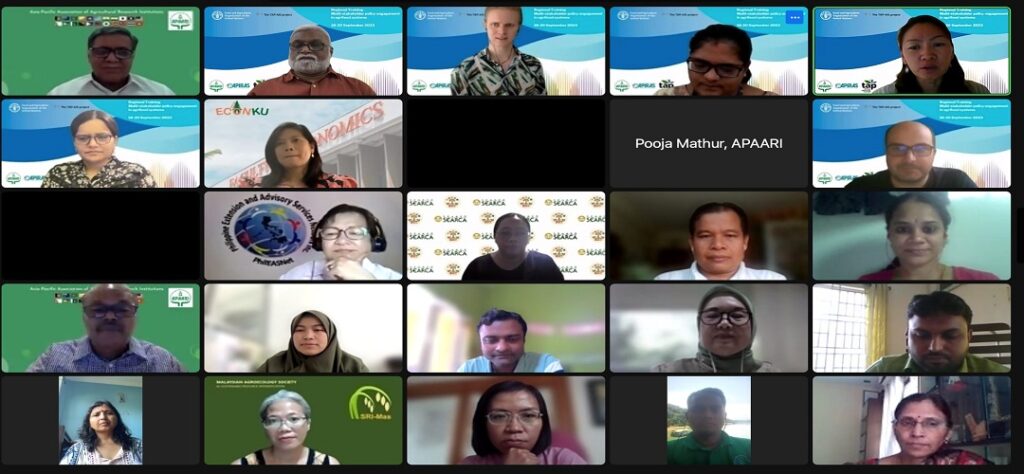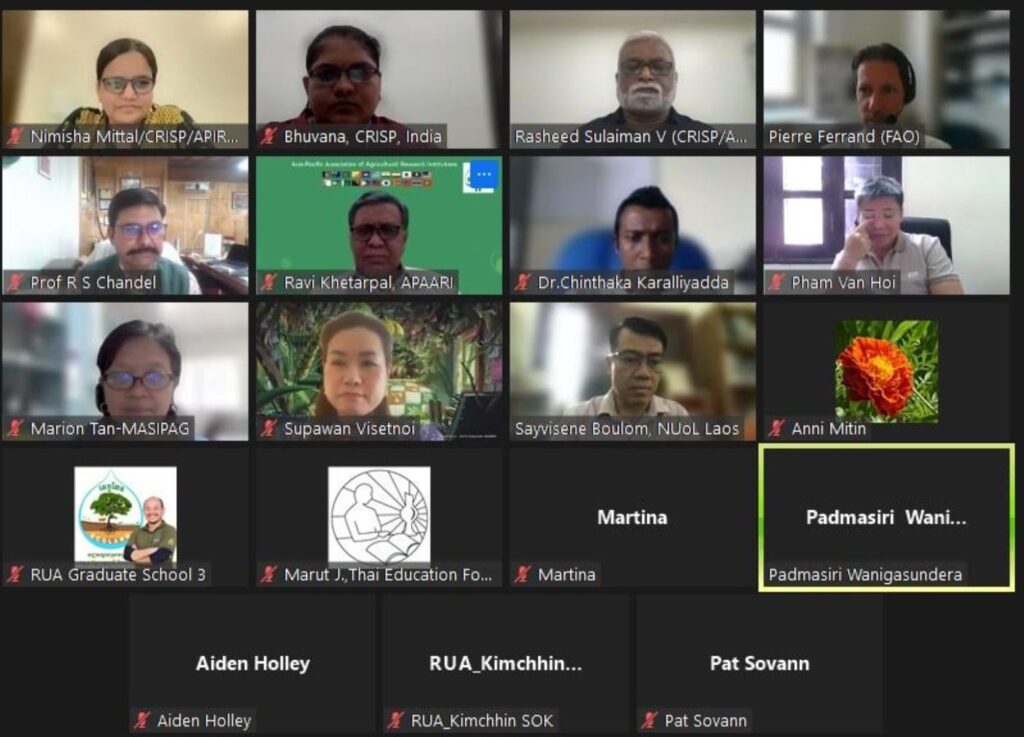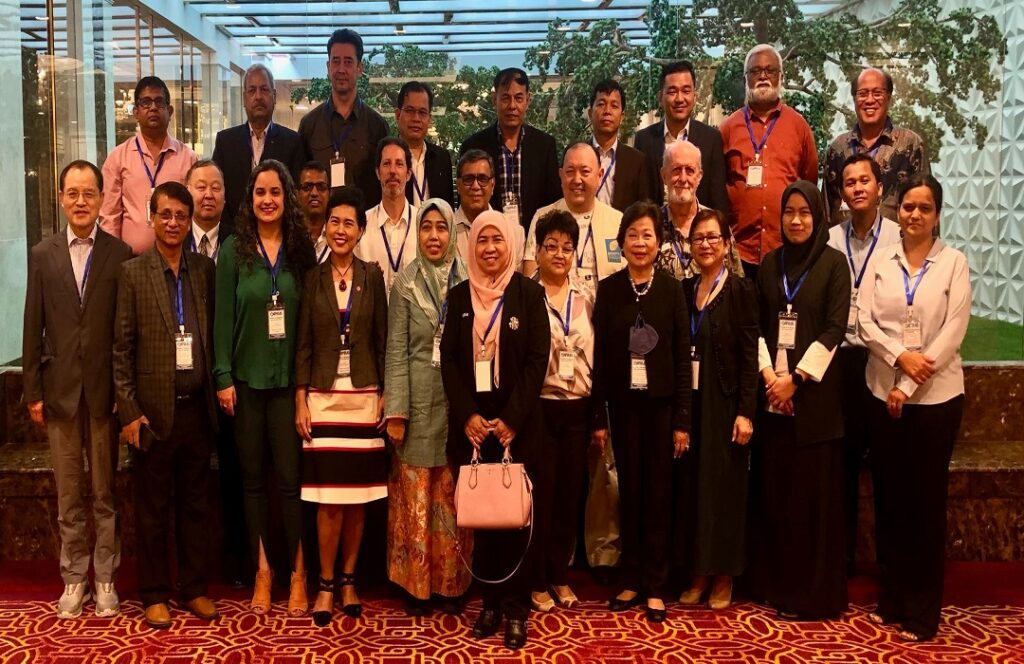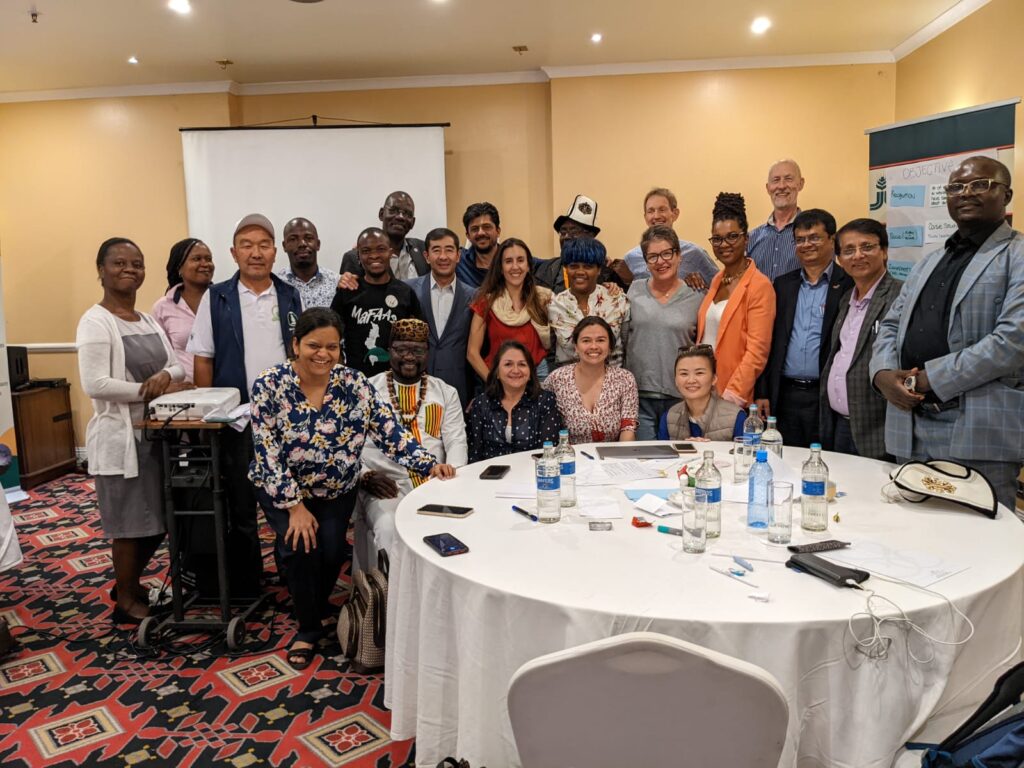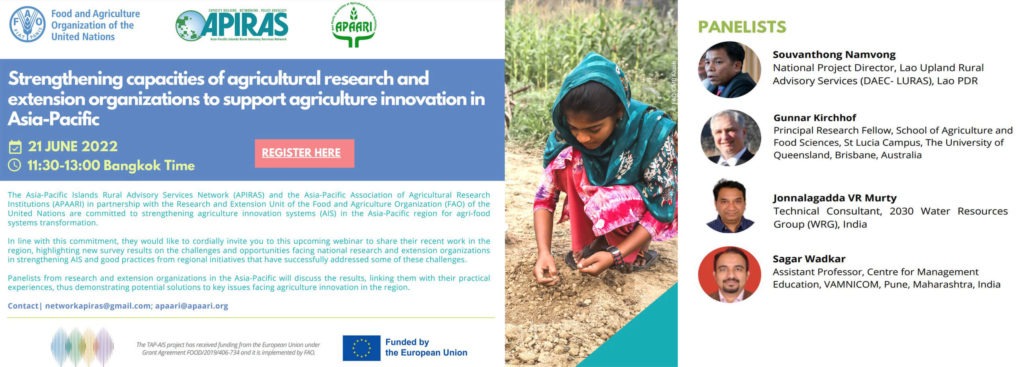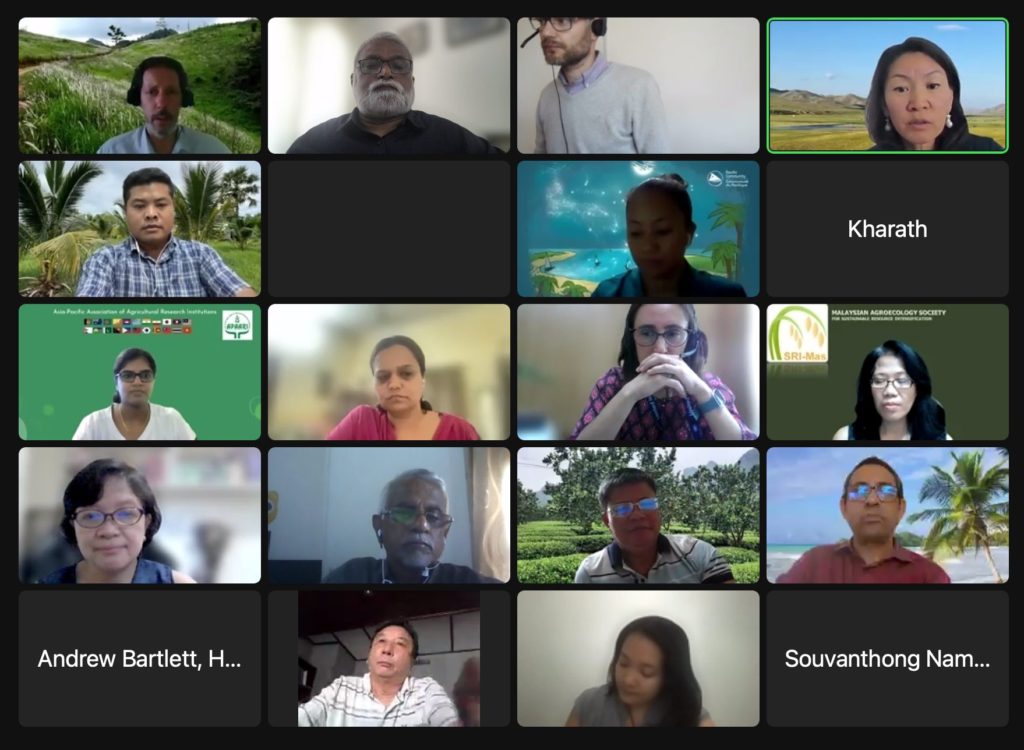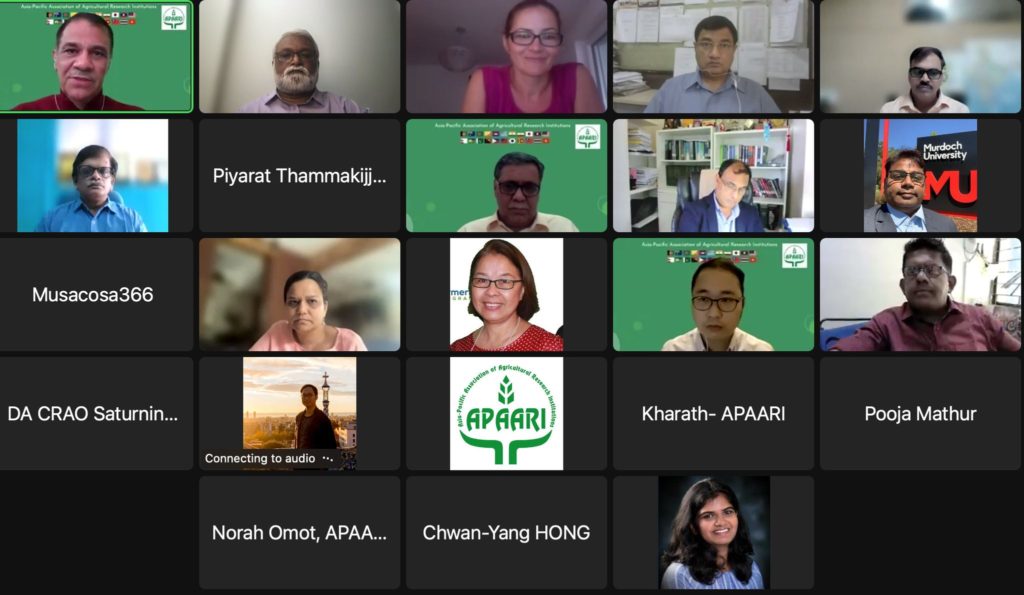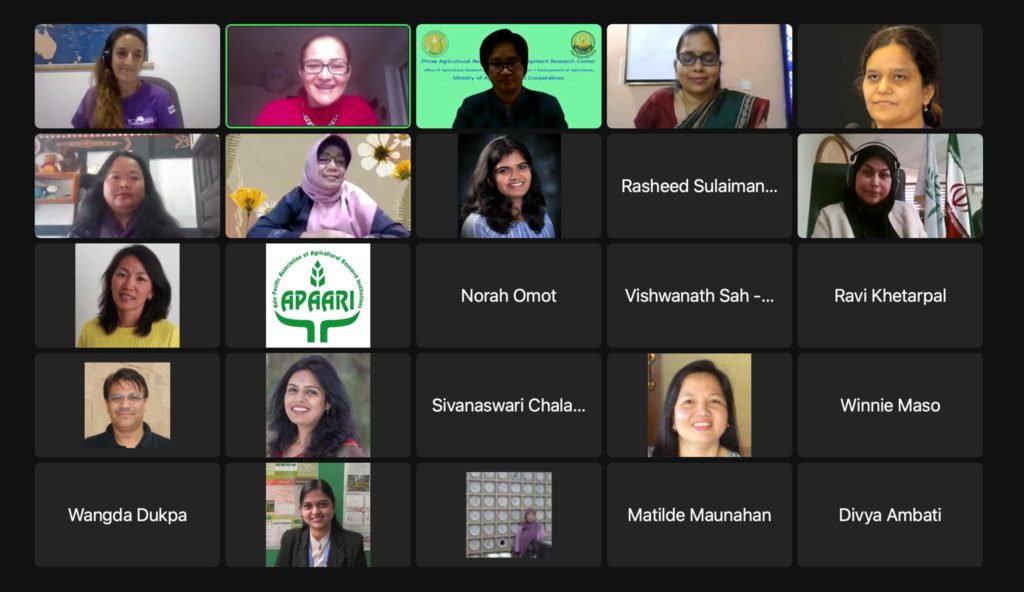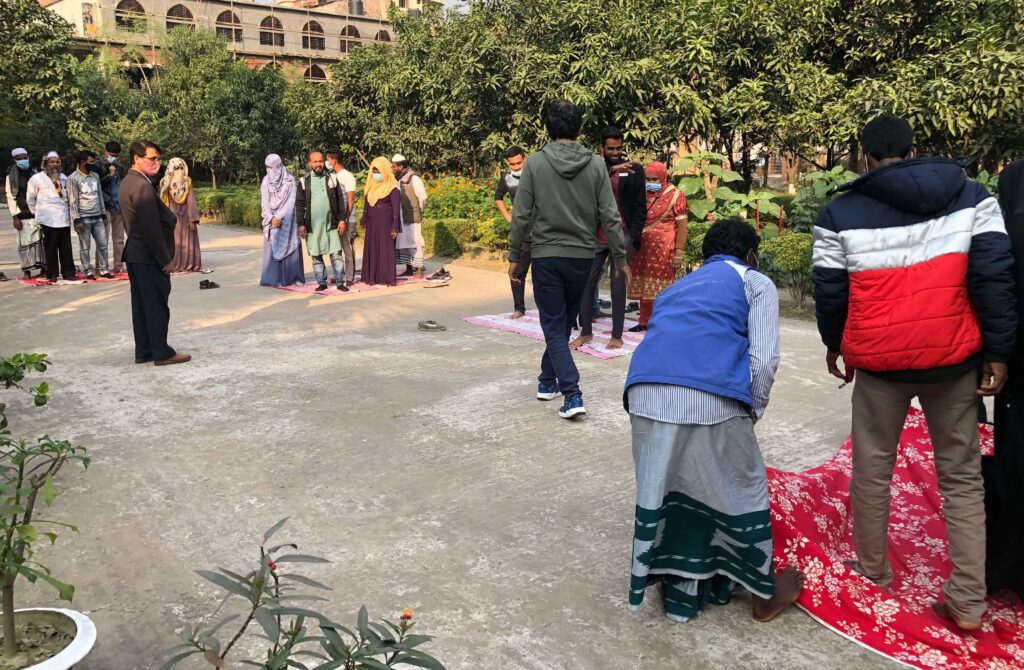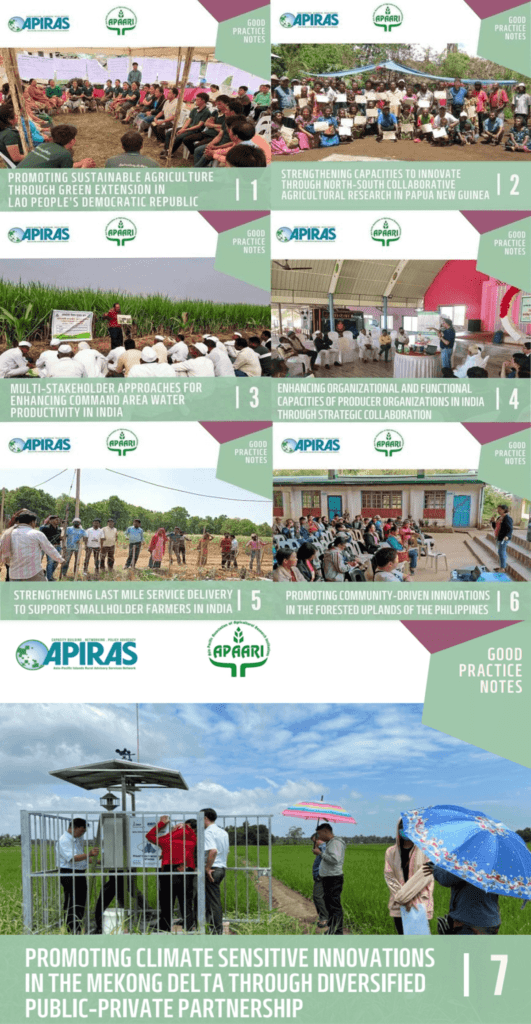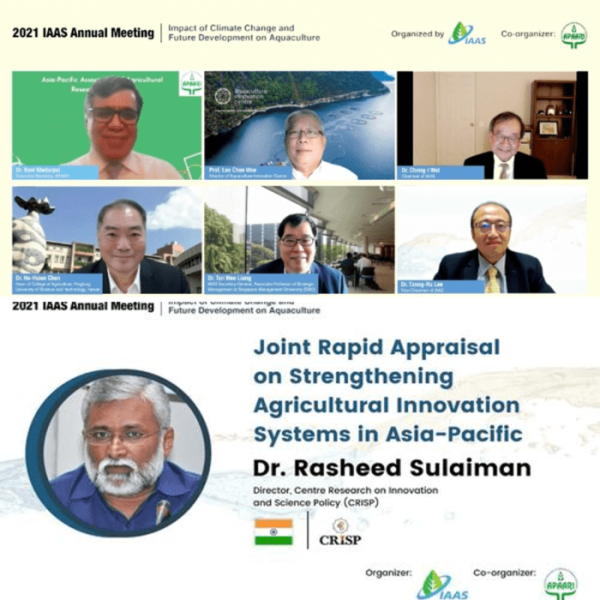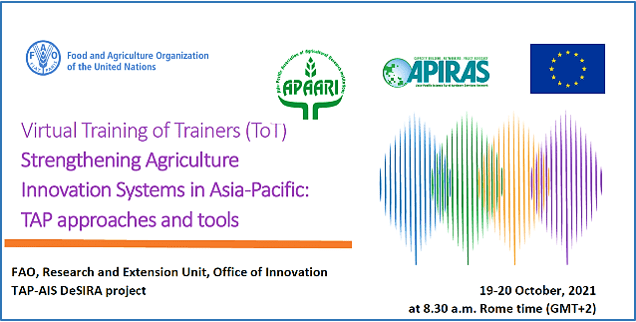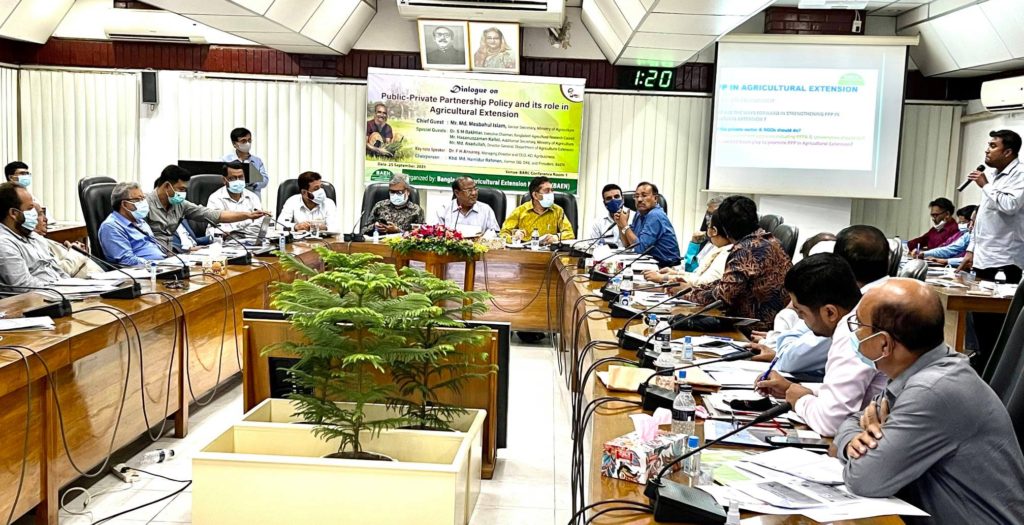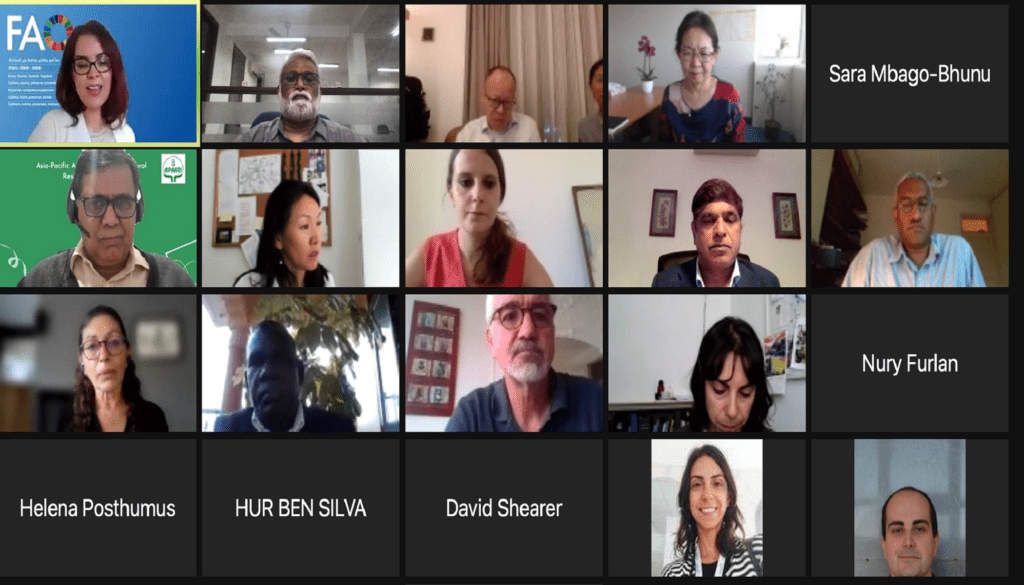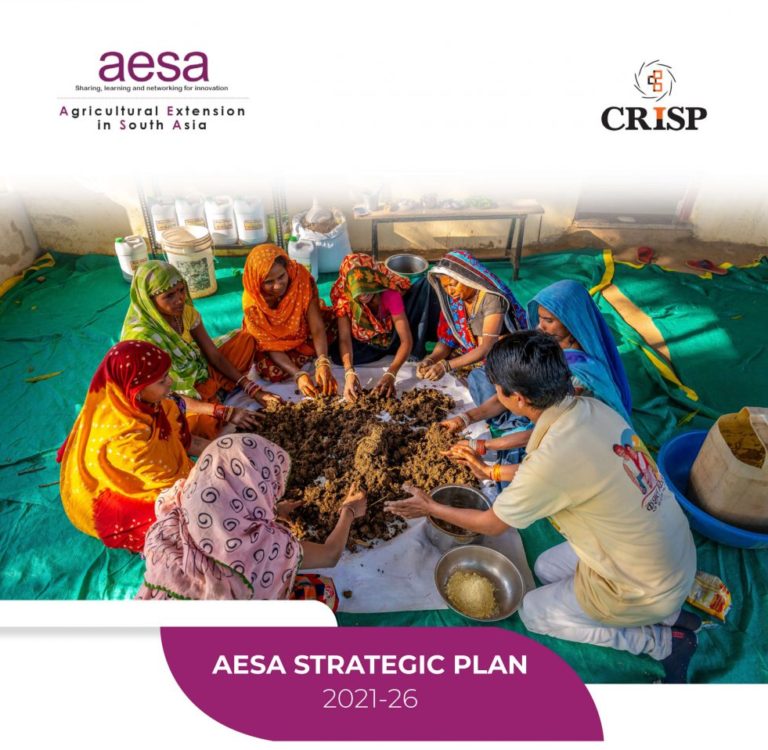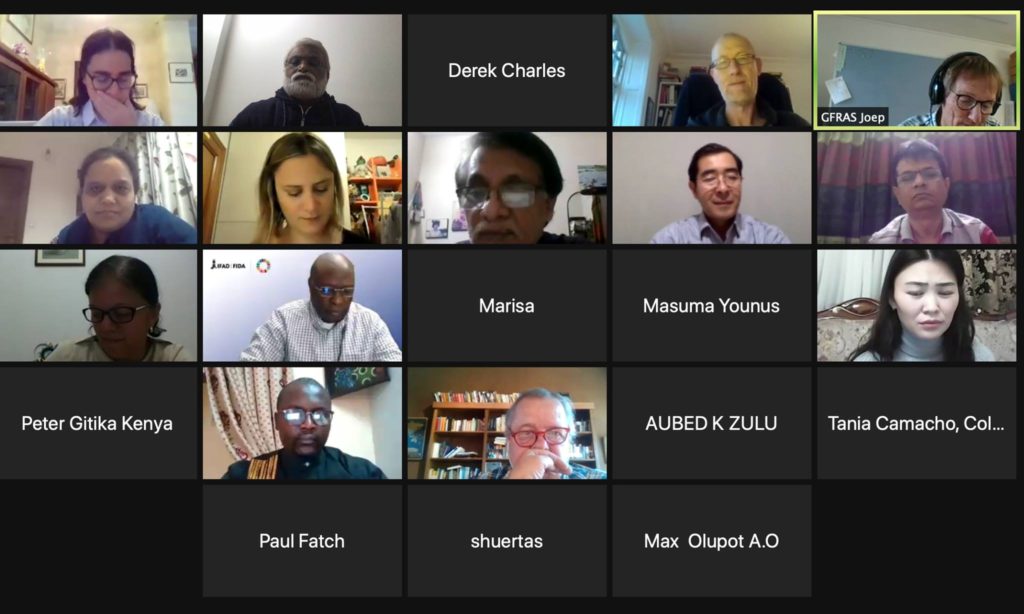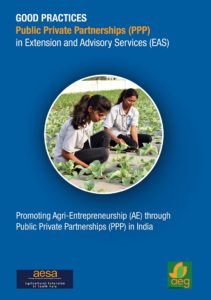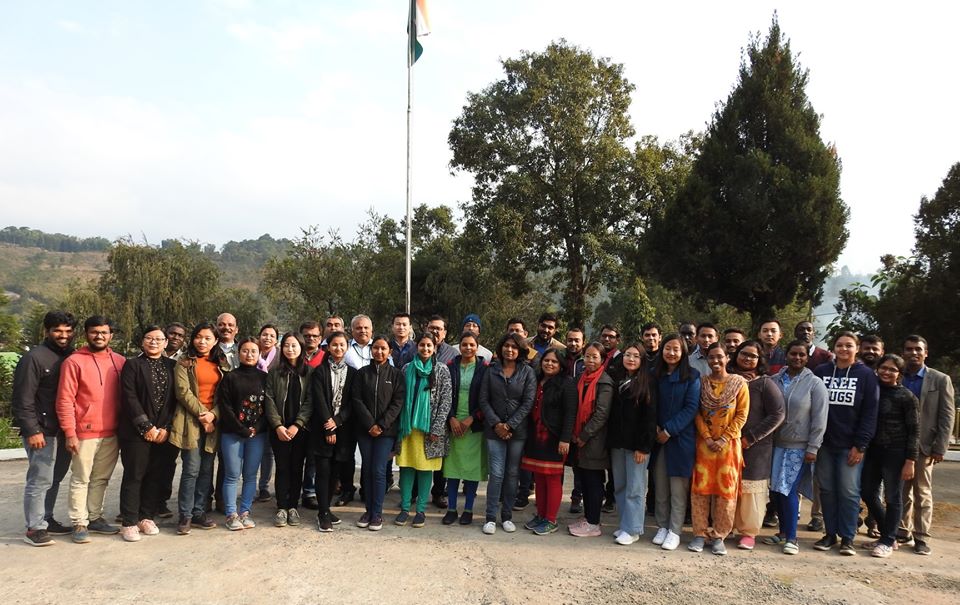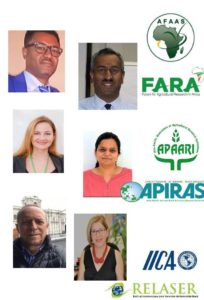Regional Dialogue: Strengthening Capacities in AIS - Scaling the TAP (Tropical Agricultural Platform) Framework, 27 - 28 December 2024, Bangkok, Thailand
APAARI and APIRAS jointly organised this consultation with a diverse groups stakeholders from across the Asia-Pacific region, including government representatives, researchers, extensionists, policymakers, educators, and practitioners to (a) Reflect on the TAP-AIS (Agricultural Innovation Systems) project outcomesin the Asia-Pacific region, addressing regional gaps and lessons learned (b) Exchange insights on strengthening Agricultural Innovation Systems through policy alignment, institutional reforms, and capacity-building initiatives and (c)Co-develop a roadmap for scaling the TAP Frameworktowards 2030, tailored to regional needs. The insights and experiences shared by the participants will go into developing the TAP Road Map 2030. From the APIRAS side, Suvothong Namvong (MELA/APIRAS Chair), Botir Dosov (CACFRAS/APIRAS Vice Chair), Rasheed Sulaiman V and Nimisha Mittal (CRISP/APIRAS Secretariat), Mahesh Jaishi (AESA Focal Point, Nepal) and Marut Jatiket (MELA Focal Point) participated.
Participation in the One-Day Conference on 'Solutions and Best Practices for Improving Crop Sector Development in Mongolia'
On 27 November 2024, the German-Mongolian Cooperation Project on Sustainable Agriculture (DMKNL), Phase 4, organized a one-day conference titled “Solutions and Best Practices for Improving Crop Sector Development in Mongolia” as part of its project conclusion. During this phase, the project supported the organizational and strategic development of professional associations in crop and vegetable farming and enhanced services for farmers provided by the Research and Development Centre (RDC), Mongolian National Crop Farmers Association (MNCFA), Mongolian Vegetable Growers Association (MVGA), and its regional associations.
The conference aimed to develop recommendations for strengthening extension services, leveraging experiences and best practices. Dr. Rasheed Sulaiman V, focal point of the Asia-Pacific Islands Rural Advisory Services Network (APIRAS), participated in the event and emphasized the need for expanding the scope of extension services beyond mere technology dissemination. Key points included identifying new capacities required at different levels, strategies for their development, and opportunities for international collaboration through the Global Forum for Rural Advisory Services (GFRAS). Dr. Rasheed also proposed the establishment of the Mongolian Country Forum under the Central Asia and the Caucasus Forum for Rural Advisory Services (CAC-FRAS) and the Asia-Pacific Islands Rural Advisory Services Network (APIRAS).
On 28 November 2024, Dr. Rasheed held discussions on establishing the Country Forum (CF) with the Mongolian Farmers’ Association for Rural Development (MFARD). Meetings were also conducted with the assistant FAO representative for Mongolia to explore potential support for the CF and with the MoFALI/RDC team implementing the AFACI-RATES project in Mongolia.
APIRAS extends its special acknowledgments to Dr. Erdenebolor Baast (Deputy Team Leader, DMKNL, and Member, RATES Project) for the invitation and to Dr. Yesun-Erdene (Director General, Department of Crop Sector Policy Coordination and Implementation, MoFALI), Dr. Turmandakh (Executive Director, MFARD), and Ms. Nandintsetseg Sookhuu (Senior Officer, Crop Production, Innovation, and Extension, RDC/MoFALI, and Principal Investigator, RATES Project) for their invaluable support for this initiative.
